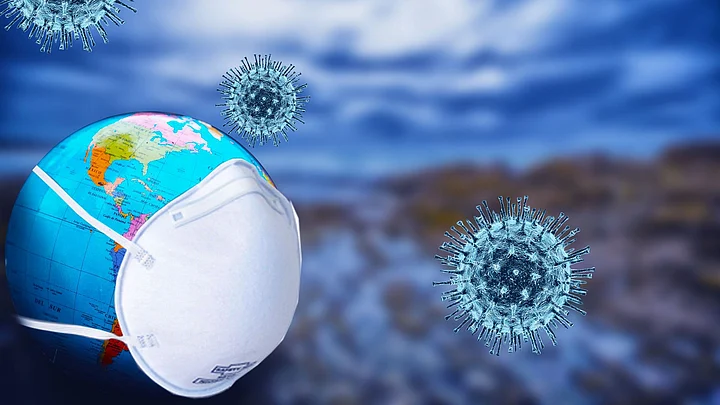Following the emergence of new COVID-19 variant called Omicron, scientists across the world are working hard to understand the variant and the potential threats that it might possess.
While anticipating the severity of Omicron, the question remains: Is it more dangerous than the Delta variant that wrecked terror round the globe?
Here is all we know about the two variants and how they differ from each other.
Where were the variants first detected?
The first case of Omicron was reported in Botswana in Southern Africa in November 2021 .
The Delta variant, on the other hand, was first detected in India in December 2020.
How did the variant spread?
Within three days of being identified in Botswana, the variant started to induce a critical rise in COVID-19 cases in the continent of Africa. In just over a month, the variant has now spread to 77 countries and has been causing great terror worldwide. While many countries went under lockdown, countries like Britain and Germany have issued a nationwide emergency.
The Delta variant, which brought a deadly third wave in India, also slammed the rest of the world into a health nightmare. According to India Today, it currently accounts for 99 percent of the total COVID-19 cases in India and is the most predominant variant.
How transmissible are the two variants?
World Health Organization (WHO) chief Tedros Adhanom Ghebreyesus said that though the Omicron variant has already been detected in 77 countries, it has “probably” spread to most nations undetected “at a rate we have not seen with any previous variant."
He said, "Even if Omicron does cause less severe disease, the sheer number of cases could once again overwhelm unprepared health systems. I need to be very clear - vaccines alone will not get any country out of this crisis."
A Bloomberg suggests that the Omicron variant is 4.2 times more transmissible than the Delta variant.
How different are the symptoms?
The symptoms of Omicron have so far been mild in comparison to that of the Delta variant.
Loss of smell and taste, which have so far been the telltale signs of COVID-19 (particularly Delta), are not so prominent in the case of Omicron.
One peculiar symptom of the Omicron variant is excessive night sweats. The patients infected with Omicron are reported to be dealing with excessive sweat, to an extent of drenching their cloths and beds. Patients infected with the new variant have also reported to have “scratchy” throats instead of “sore” throat
How severe is Omicron as compared to Delta?
Due to lack of data, there has not yet been any confirmed reports on the severity of Omicron.
However, despite reinfections and breakthrough infections, cases of Omicron so far have largely been asymptomatic or causing mild symptoms, FIT reported.
However, experts warn that this is no reason to let guard down. Three months after Delta variant was first detected in India, the country was recording at least 4,000 deaths per day.
How effective are the COVID-19 vaccines against the variant?
Vaccines of Pfizer, Moderna, AstraZeneca, Johnson & Johnson, along with the other globally recognised vaccines, were competent enough to provide immunity against the Delta variant.
Citing early evidence, the WHO said that the Omicron variant causes "a reduction in vaccine efficacy against infection and transmission."
With the ability of the Omicron variant to escape the immune response (both natural and vaccine-induced), the scientists are stepping towards studying and upgrading the existing vaccines.
(With inputs from FIT, Bloomberg, and India Today.)
(At The Quint, we question everything. Play an active role in shaping our journalism by becoming a member today.)
